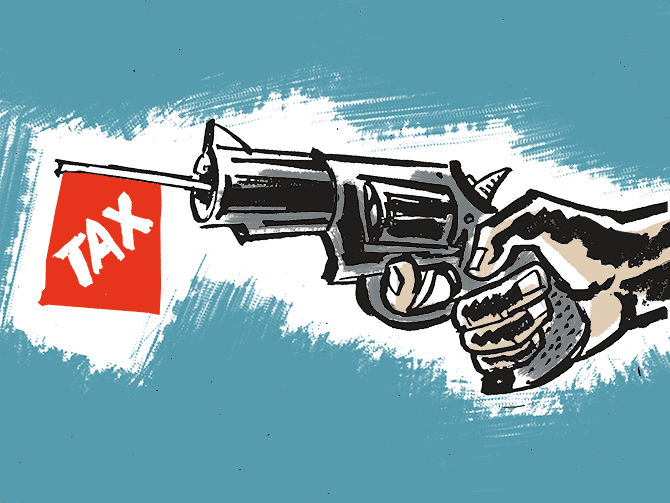

By A Special Correspondent
Has the government or the ruling party instructed income tax officers to ask businessmen not to talk about tax terrorism? Or are such officers doing it of their own volition in order to prevent the department from getting flak in the wake of allegation of tax terrorism being one of the reasons of CCD owner VG Siddhartha committing suicide? Whatever is the reason, and irrespective of the truthfulness of such allegations, tax officials or no one else has the right to issue veiled threats to anyone. The biggest mistake these officials did was to tell this to an upright person like Kiran Mazumdar-Shaw, the CMD of Biocon Ltd and the chairperson of IIM, Bangalore. She promptly informed about the incident to Mohandas Pai, former director of Infosys. Pai is known to speak his mind and usually supports the good initiatives of the Modi government. But this time, in an interview to NDTV.com, he categorically said that that tax terrorism is a fact and the government has failed to stop it despite its promise to end it.
So what is tax terrorism? The dictionary defines terrorism as 'the unlawful use of violence and intimidation, especially against civilians, in the pursuit of political aims." If we tweak it to say "use of intimidation through power of authority and hazy provisions of law, against taxpayers, either to meet unrealistic tax estimates or to force taxpayers to pay bribes to settle cases" we would have defined tax terrorism. This is not to say that it is not used as a political tool. Many times, politicians belonging to the opposition parties and their associates, the so-called politically exposed persons, are raided by the tax authorities, in order to either silence them or make them support the ruling party.
Tax terrorism is not only related to raids though. Tax officers are known to visit premises of taxpayers and 'request' them to deposit more advance tax and show more income. Despite filing of online returns, random scrutiny cases have become tools to harass the taxpayer where massive additions to total income returned are done by officers. Long term capital gains is one such head of income that is currently the hot favourite for addition. Difference in valuation of shares in another favourite. Business expenses shown are another area of contention. Officers often do not acknowledge even the documents submitted as proof and tell assesses to file appeals. One thinks that this is because they fear that if they do not show results that increase tax revenue after scrutiny, they might be marked as corrupt, as persons who took bribes from the assessee to let him off. But this is leading to unnecessary appeals to IT commissioners and appellate tribunals and most big cases then land in the courts. The department is drowned in a flood of litigation which can be avoided if the officers are not so inflexible at the time of scrutinizing the returns.
Then, there are no clear rules for attachment of property, shares or bank accounts. Different officers issue orders for attachment at different stages of a case. There must be a fixed timeline which the officers must adhere to when making such attachments. For, while it might be necessary to attach property or bank account for the purposes of recovering tax, it has to be done at a time when it becomes clear that the assessee has exhausted most of his legal options. If the case comes up in courts, they are nowadays many times insisting upon the taxpayers to first deposit the disputed amount in an escrow account. That would serve the purpose better. The tax department has to be taxpayer-friendly. The finance minister has said that a faceless scrutiny system will be adopted soon and the taxpayer will not have to meet officers. Even the officers will be selected randomly and do the scrutiny from remote locations. That might reduce instances of tax terrorism.
Pic courtesy: rediff.com











